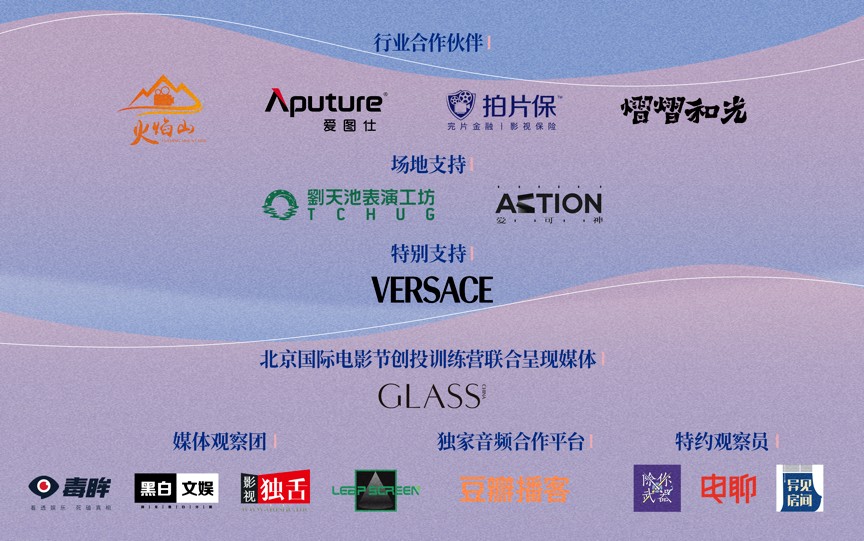Market
The Beijing International Film Festival Pitch Training Camp Masterclass Begins, with Su Biao Sharing Creative Insights and Growth Guidance
Recently, the 15th Beijing International Film Festival Pitch Training Camp Masterclass kicked off. Screenwriting mentor Su Biao, who is both a screenwriter and director, shared his insights based on his own creative journey. He discussed his creative techniques and offered detailed industry observations, providing a content-rich workshop for the 33 selected participants.
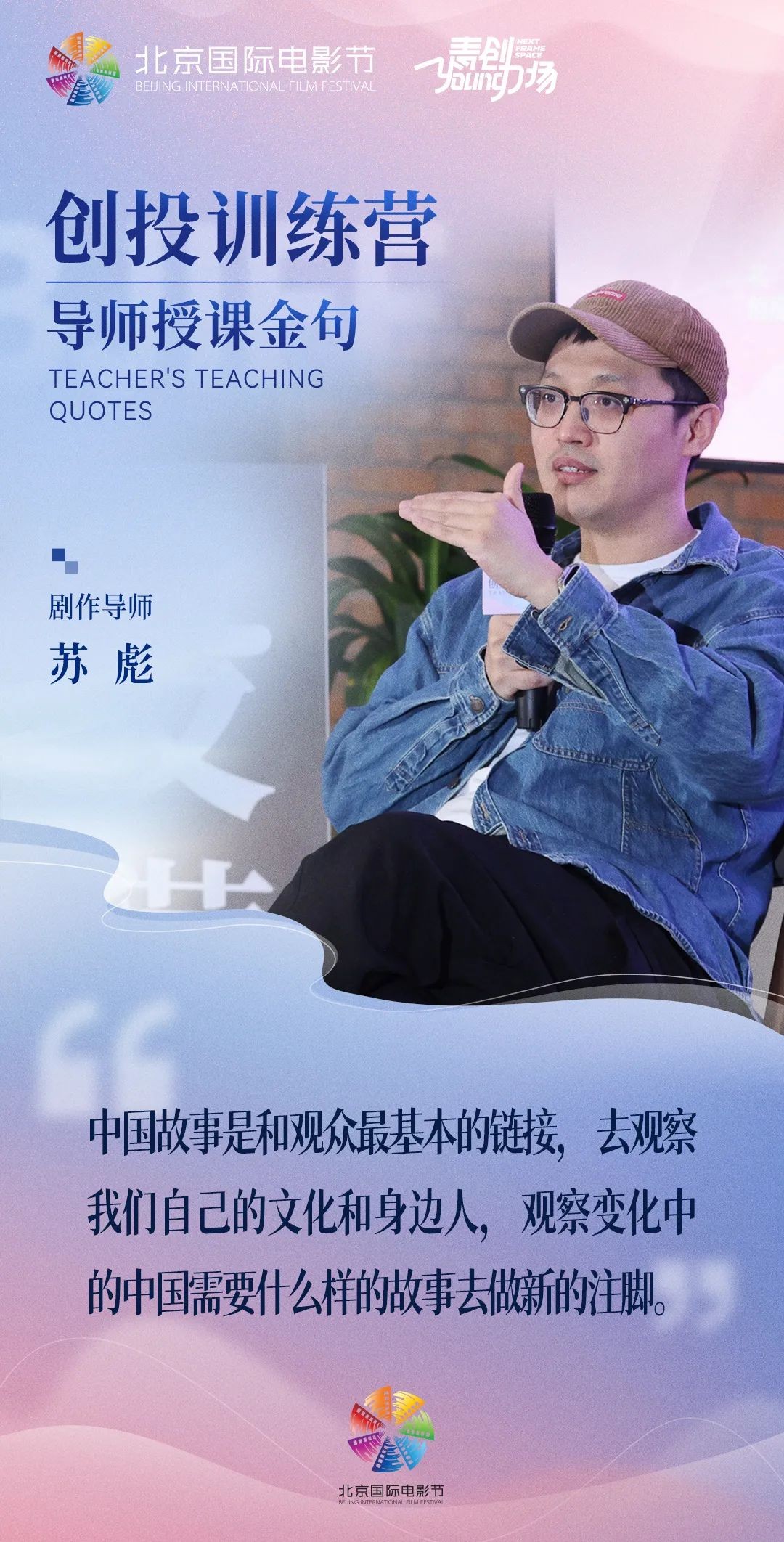
Su Biao's Memorable Quotes
▍ Essence of Creation: Observing Life and Depicting the Era
Starting with his involvement in the film Pancake Man as a screenwriter, to achieving critical acclaim with films like City of Rock, Post-Truth, One and Only, and then directing the box office success Honey Money Phony, Su Biao's repertoire as a screenwriter and director is rich. Each of his works features stories that resonate with audiences and sincere emotional expressions.
When discussing the choice of subjects and creative inspirations for different works, Su Biao uses City of Rock and Post-Truth as examples, "The story of City of Rock is more about emotion and self-expression, and the Post-Truth embodies the pursuit of truth, goodness, and beauty in cinema. I hope that by working on topics that are both entertaining and thought-provoking, I can reveal the warmth from within oneself." Su Biao honestly shared that beyond personal expectations and market demands, the essence of creation lies in two aspects: telling Chinese stories and keenly observing and depicting the times.
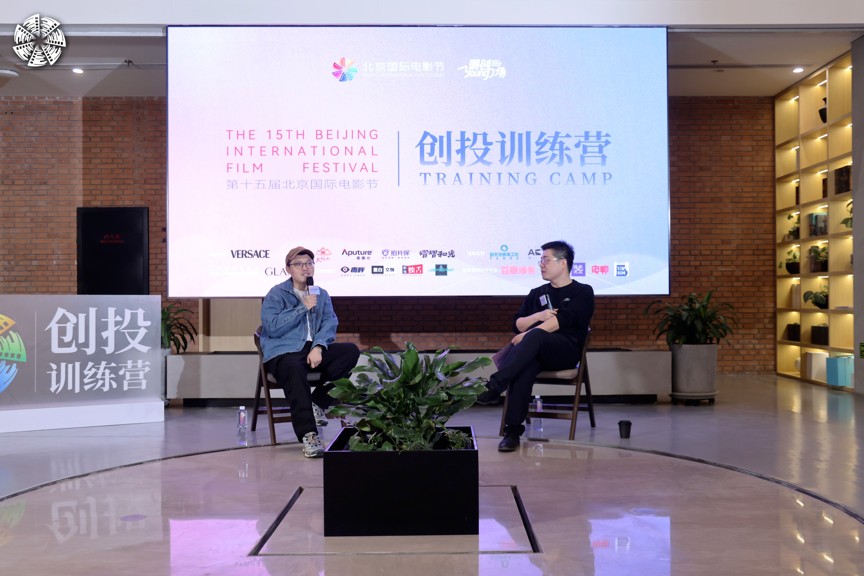
On-Site Sharing by Screenwriting Mentor Su Biao
Su Biao encourages everyone to pay close attention to life and maintain basic observations of it. He highlighted the necessity of regular writing and bold creation, emphasizing the importance of maintaining a deep connection with one's writing. He shared that daily training is essential, "It is the foundation and source of all profound work." Furthermore, he recommended that young creators take time to develop their skills rather than rushing into innovation, "Don't dismiss classic structures. Only by mastering the fundamentals can you challenge new structures, methods, and creative experiences."
▍ Core of Creation: Adopting the Right Attitude and Revering the Reality
In Su Biao's view, original screenplays and adapted works each have their own unique charm. Through his adaptation work on Honey Money Phony, he has delved deeper into the issue of "retaining the essence of the original work while infusing it with innovative elements." He said, "When you decide to adapt a literary or film work, you must first correct your attitude. Don't think about overturning or revolutionizing it. Instead, focus on what attracts you to it and repeatedly remind yourself, 'This is the most important reason why I like this work.'" On a practical level, Su Biao offers two feasible approaches: First, localize and Sinicize the adaptation to make it relevant in its new context. Second, use contemporary themes and issues to breathe new life into imported or old stories.
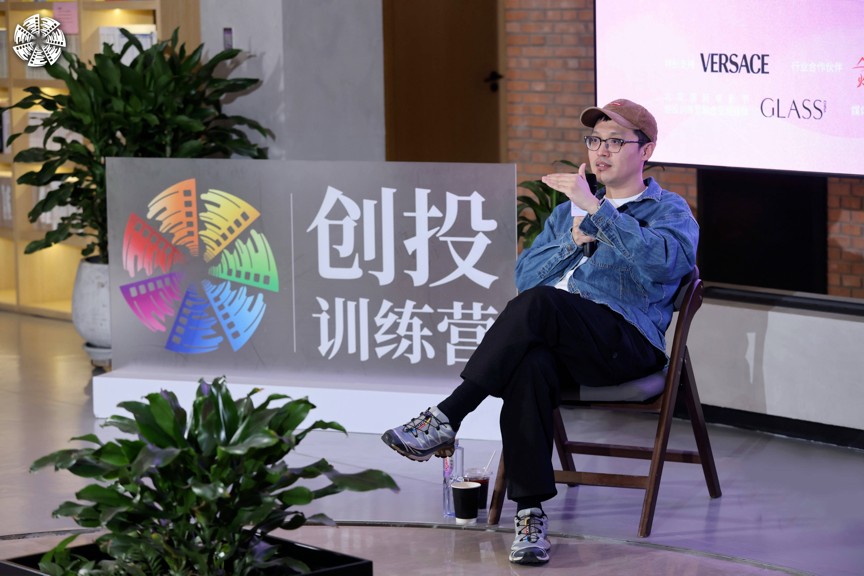
On-Site Sharing by Screenwriting Mentor Su Biao
Nowadays, the number of realistic-themed creations has surged. Su Biao frankly said that these are challenging subjects to tackle because they involve more people and carry greater responsibilities. Therefore, he advises participants to maintain a pure heart, be mature in all aspects, be well-prepared, and accumulate enough strength before interpreting it. "You can't approach realistic-themed creations with a commercial perspective. The new era endows films with new power, and movies can, to some extent, drive social and global development."
▍ Comedy Creation: Find the Right Approach, Laughter Requires Collective Effort
"Comedy is a feeling and a rhythm, driven by perception and followed by experience," explains Su Biao, who has extensive experience in comedy across various formats, including skits, web dramas, and films. He stresses that creating comedy is difficult and requires careful balancing. First, thorough preparation at the scriptwriting stage is essential. The actual shooting is the most difficult part, and it requires the coordinated efforts of every department. In his view, it is essential to ensure that the cinematographers, directors, screenwriters, and editors all have a sense of humor. Only then can many of the comedic elements be consistently ensured and even made funnier than initially envisioned. Su Biao highlights that humor follows logical patterns and structures, and the collaboration of all team members is key to achieving both major and minor comedic moments.
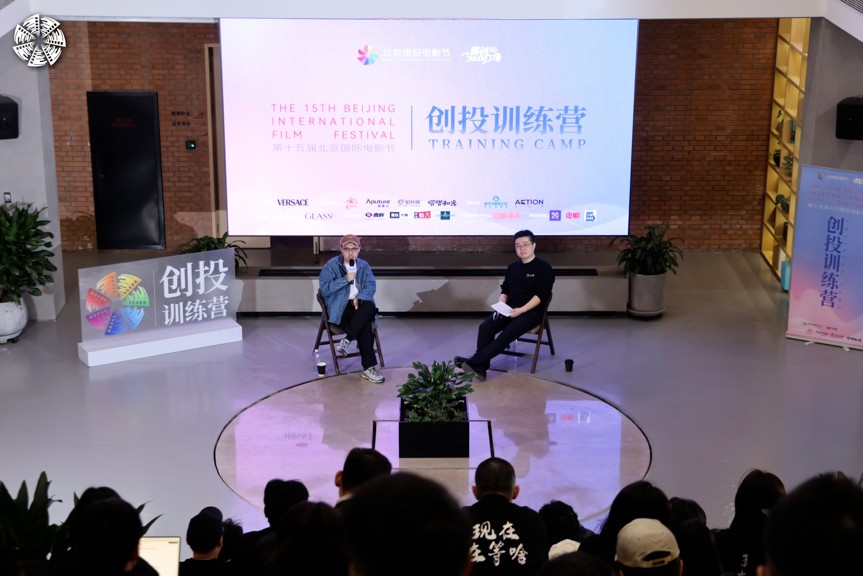
On-Site Sharing by Screenwriting Mentor Su Biao
▍ Transitioning to Director: Brave Cross-Over and Learn Self-Reflection
Discussing his journey from screenwriter to director, Su Biao highlights that the most crucial element is the "transition." When opportunities and the desire align, making this "transition" becomes more important than anything else. "This era provides young people with abundant chances to explore and learn from their mistakes. If you feel supported and have faith in your abilities, don't hesitate." During the transition, Su Biao also faced many challenges. His experience is "to learn", to harmonize with all the staff on set, and to use new insights to refine his approach.
In the process of transforming text into visual and auditory art, Su Biao recognized the importance of the need to let go of attachment to every word in the script. As a director, it's vital to abandon the screenwriter's mindset, viewing each scene objectively, fairly, and rationally. Working with the team also taught him the importance of making informed decisions and maintaining efficiency.
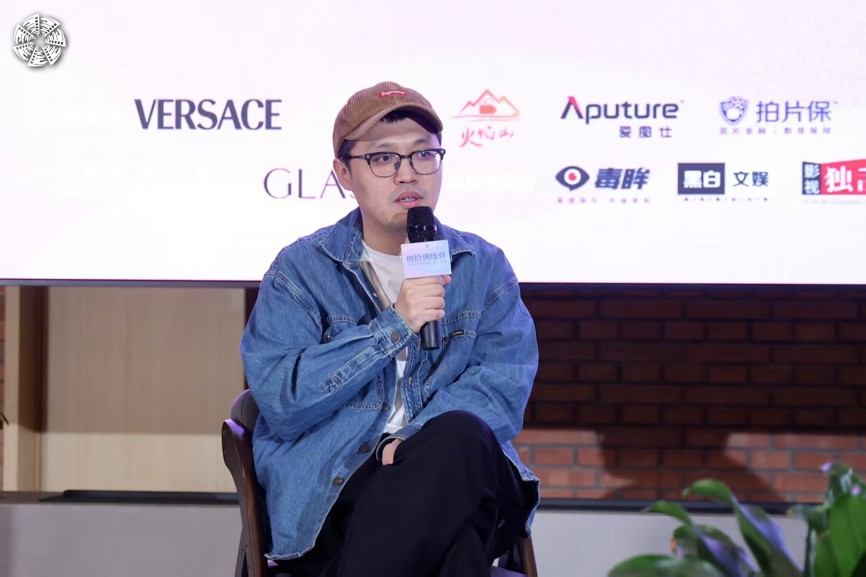
On-Site Sharing by Screenwriting Mentor Su Biao
▍ AI and the Future: Tools Are Cold, They Can't Replace Human Creativity
Addressing the impact of AI on the screenwriting industry, Su Biao candidly admits that current AI has indeed become powerful enough to warrant scrutiny and respect. However, AI is just a "tool", useful for tasks like data collection, enhancing productivity, and drafting preliminary scripts, but it cannot substitute for talented screenwriters. Su Biao underscores that creative work involves deep insights into and expressions of human nature, which current AI cannot replicate. AI cannot capture the intricate and fluctuating emotions of humans or convey their genuine vitality because it lacks emotions, warmth, and is merely an extension of human capabilities.
▍ Words for Newcomers: Keep Your Initial Passion, There Are No Shortcuts in Creation
In genre film creation, Su Biao positions himself within the thematic school. He believes that if the central theme is not well-developed, even if the script contains some clever twists or lively moments, it would still be a failure. He explains that once a theme is solidified, numerous intriguing ideas can flourish. "Like the sun in the Milky Way, the fascinating elements are the shooting stars, but they cannot alter the sun's course."
Facing the participants' worry about their creations becoming self-indulgent, Su Biao stated that the script must possess fundamental literary qualities, that is, elements that resonate universally and are accessible to everyone. Readability and coherence are essential. "Strive for excellence in your writing, treating each draft as if it were the final version. Do not fear hard work or the process of refining your words. Great works come from doing every step well."
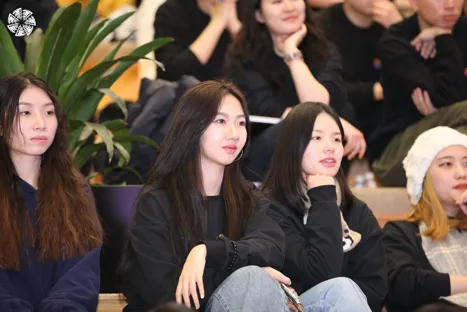
Participants at the Event Site
Q&A
Question 1: How to ensure the contemporaneity of the work in creation?
Su Biao: I think that when you actively try to cater to current trends, you've already surrendered your mind to unseen forces. Actually, I also really want to create a very contemporary work, but upon reflection, I realize that only if you are a fresh person will your work have contemporaneity. Creation is not about following trends, it requires betting on your own judgment. When you decide to spend one or two years on something, you need to have the ability to analyze whether this work, even if it appears two years later, will still resonate rather than become outdated.
For example, certain aspects of human nature are eternal. When you shift your focus to people themselves, you will find many topics that never become outdated.
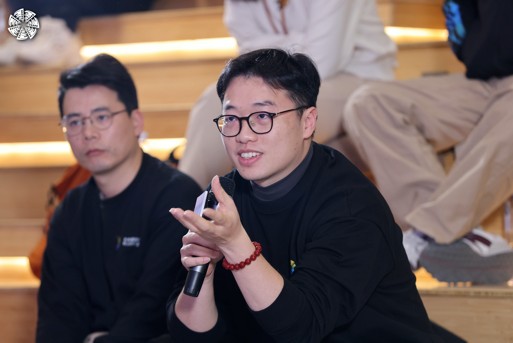
Interactive Q&A Session with Participants at the Event
Question 2: How to make the decision to start over when realizing the script needs a major overhaul?
Su Biao: As a creator, it's essential to cultivate the mindset of letting go and develop resilience because the golden period for creative work is very short. Lingering on past efforts only wastes time, you shouldn't lament, regret, or blame others. You must move forward continuously. If you lack this ability, then perhaps screenwriting isn't for you. Additionally, success shouldn't be measured solely by whether a project gets produced. Continuous reflection helps rebuild confidence for future projects, leading to true success. Creation is laborious, and we all need to become tougher, more resilient, and stronger.
Question 3: Can the pacing of short dramas affect movies?
Su Biao: Short dramas are excellent observational material, and we need to understand them dialectically. I can still learn something from short dramas. By watching them, I've noticed that current audiences crave satisfaction because their lives often lack excitement and dramatic ups and downs. Through the lens of short dramas, we can discern the essence of what today's audience truly desires, which helps us as creators in our new projects. Rather than trying to outdo short dramas, we should focus on improving ourselves. We need to use sophisticated methods to surpass simpler forms, much like director Jiaozi did by bringing audiences back to the cinema to experience the charm and emotional depth of longer stories. If short dramas satisfy the audience, then I hope films can comfort and console them.
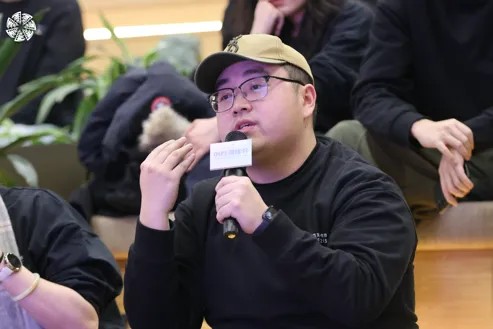
Interactive Q&A Session with Participants at the Event
Question 4: How to find a narrative unique to China?
Su Biao: Many scriptwriters rely on dramatic theories proposed by Western predecessors. I believe these theories are universal human wisdom, not confined to any region. They simply got there first. Chinese people have a very fixed, free, and deeply ingrained emotional gene that needs constant exploration, expression, and utilization.
Question 5: How can young creators protect their creative views?
Su Biao: This question requires a premise: what you stand for must be right. If it's incorrect or immature, there's no reason to hold onto it. New directors should strive to integrate into the director community, listen actively, and find effective ways to engage with seasoned professionals. This could involve an earnest late-night conversation, a carefully prepared presentation, or a clear and logical self-statement. The ultimate goal is to discover and articulate what truly matters most to you in your work.
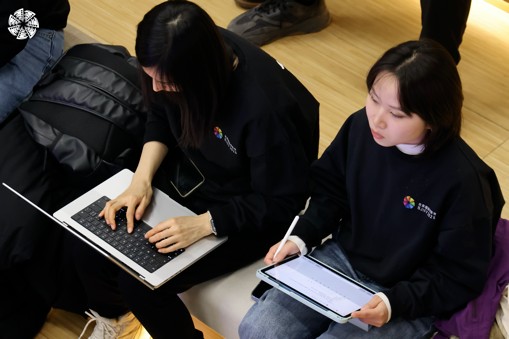
Participants at the Event Site
Upcoming sessions at the training camp will include classes by Lead Producer/Producer Mentor Ying Luojia, Director Mentor Liang Ming, Cinematography Mentor Cheng Ma, Production Design Mentor Tu Nan, and Editing Mentor Zhu Lin. Please stay tuned.
